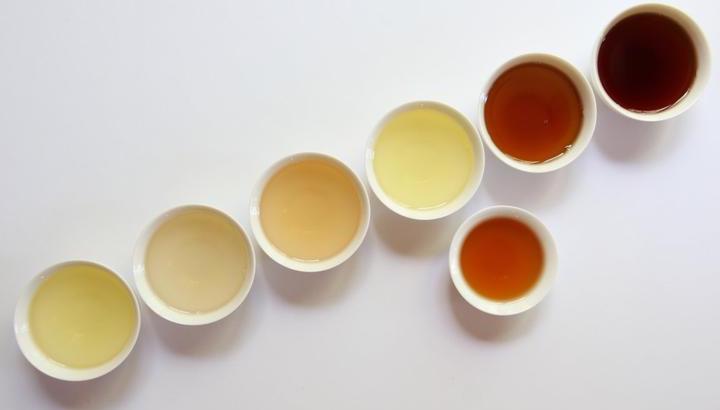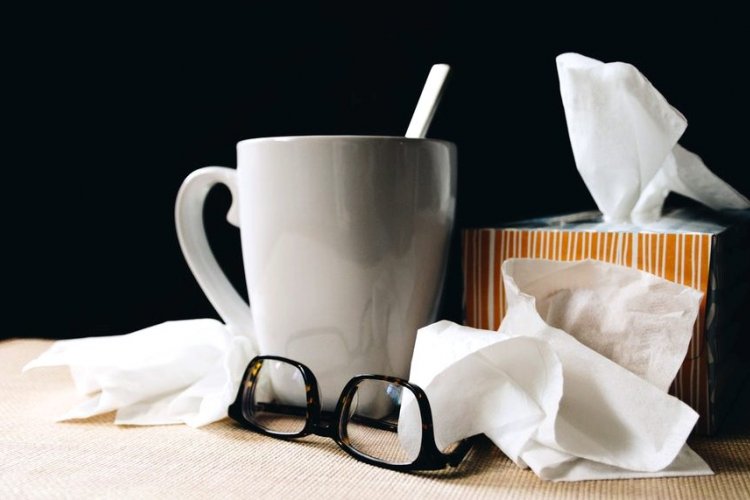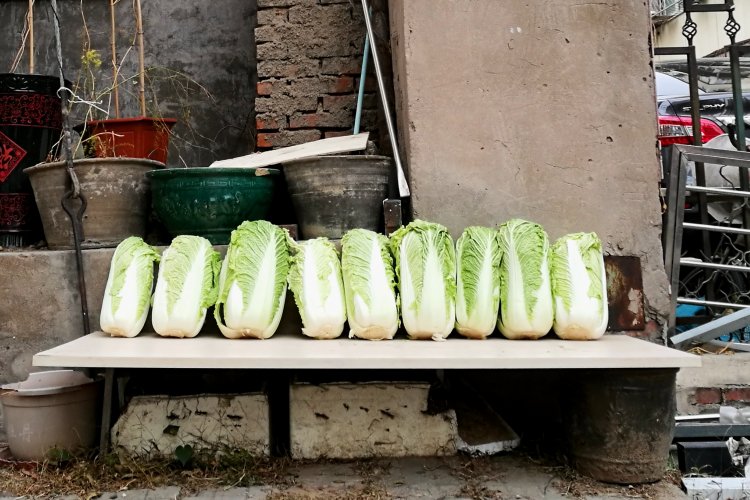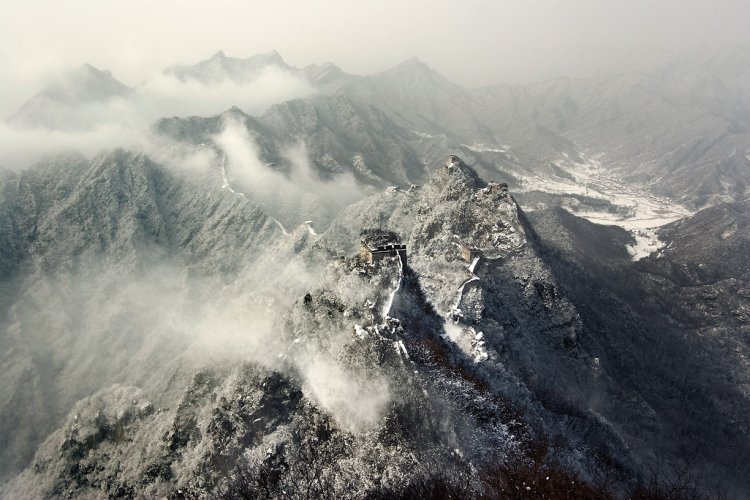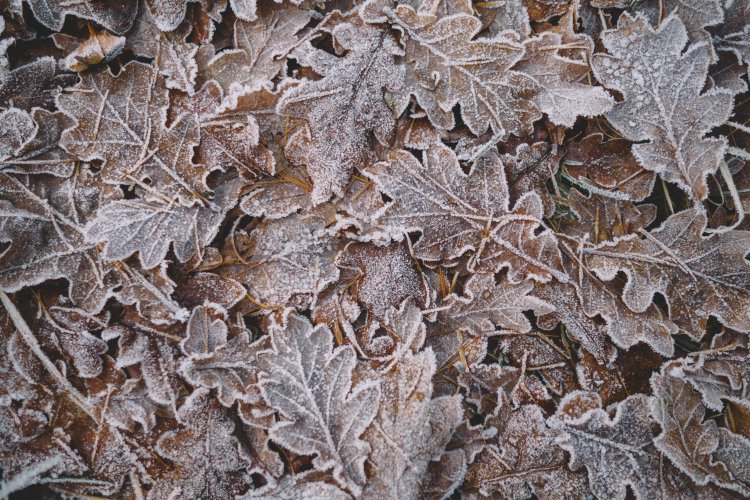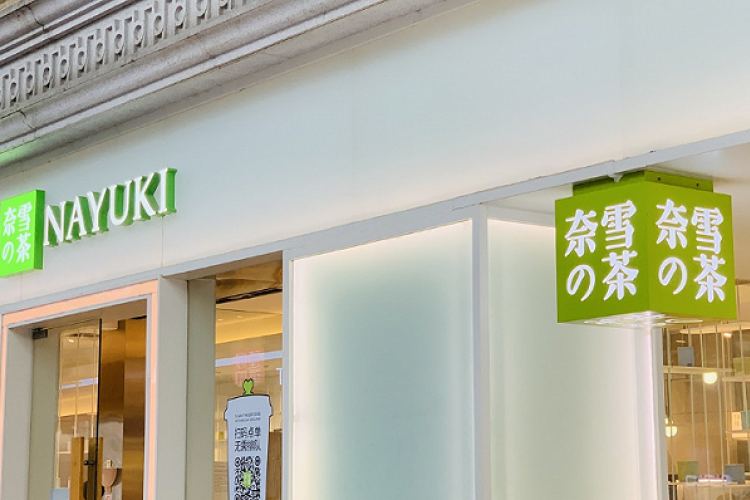Know Your Teas: A Full and Leafy Spectrum of Cuppas
Autumn is just around the corner, the leaves are slowly beginning to turn, and the weather is turning from warm to a bit more cool. Time enough to enjoy a bit of warming tea!
Of all the beverages in this crazy world, tea is still my all-time favorite to imbibe in rain or shine. This traditional drink can not only quench your thirst but also is beneficial for your health in multiple ways.
Catechin is one of many natural antioxidants found in tea that can soothe chronic inflammation, protect your cardiovascular system, and even prevent the cancer cells from developing. Plus, as a classic energy drink, teas will leave you with is a subtle fragrance rather than a bitter and tangy aftertaste.
Of course, we're not talking milk tea, but real deal – authentic, traditional tea. Let’s learn about the classic categories of tea in China today.
Green Tea
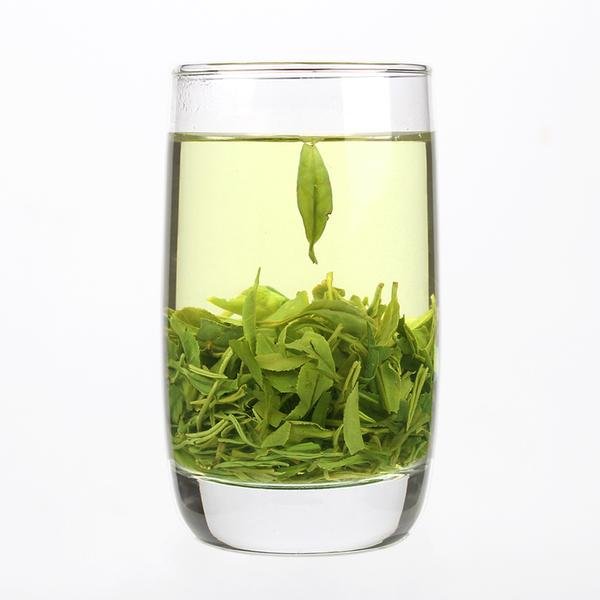
This is probably the first thing that comes to mind when you think of Chinese tea, and indeed, it's one of the major categories of tea represented overseas. It's also one of the oldest forms of tea in the world – Residents living in Sichuan started to drink and cultivate green tea almost 3,000 years ago.
The most significant feature of green tea is its color, not just of the leaves but of the color of the liquid it produces. To maintain its hue of refreshing green months after its harvest, a procedure called 杀青 (which literally translates as "kill the green") is necessary. This process uses high temperatures, usually steaming, to reduce the activity of the enzyme and prevent the leaves from fermenting and stopping the oxidation process of the polyphenol.
Green tea is known for its clear olivine color liquid and refreshingly crisp taste. Compared to fermented teas, it also maintains more natural nutrition from its fresh leaves, yet it may upset the acid-base balance of your digestion system if you drink too much at once.
Tea leaves for producing green tea are usually harvested in the early springtime. For example, the famous 明前茶 míng qián chá generally refers to the tea harvested before Qingming Festival.
Famous green teas to try:
- 碧螺春 bìluóchūn
- 西湖龙井 xīhú lóngjǐng
- 六安瓜片 Liù ān guāpiàn
Black Tea

If we put all genres of tea on a spectrum, then green tea and black tea shall sit on both ends respectively, even though they both come from the same leaves. But unlike the process of producing the green tea, you don’t need to bake the leaves first, rather, you should let them set and wither until the vines become translucent.
Then let time and enzymes do the magic, and start rolling the leaves to facilitate the oxidation of the polyphenol, while caffeine, theaflavin, and thearubigins start to form, turning their color dark red. (What we call black tea is actually called 红茶 hóngchá red tea in Chinese. This difference is the result of a mistranslation when the tea was first imported to England.)
These ingredients endow the black tea with a ruby-like color and a profound, mature aroma. The origin of black tea is the Wuyi Mountain in Fujian Province and was then brought to the global stage by the European royalties later in history.
Famous black teas to try:
- 祁门红茶 Qí mén hóngchá
- 大吉岭红茶 Dàjí lǐng hóngchá
- 阿萨姆红茶 Ā sà mǔ hóngchá
Oolong Tea

Oolong Tea, also known as dark dragon tea, falls right in between green and black tea on the spectrum. During its production, the leaves will also be left to wither after the harvest and need to go into a fermentation period, however, the "killing the green" process is also required to end the fermentation before its completion to keep a desirable balance which resulted in its layers of flavor that will only unfold in front of you after being boiling several times. Oolong tea usually shines in a golden or rosy tint once brewed.
Famous oolong teas to try:
- 大红袍 Dàhóng páo
- 东方美人 Dōngfāng měirén
- 铁观音 Tiě guānyīn
Real Black Tea
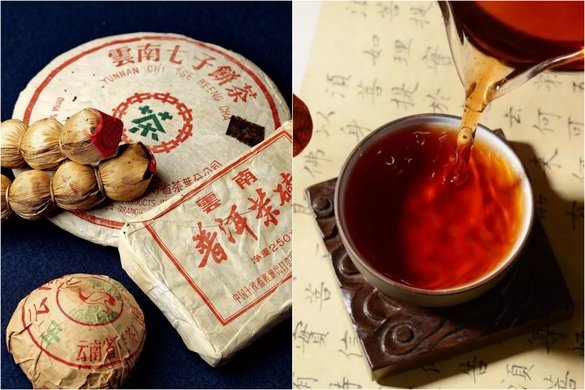
As we mentioned above, what we call black tea is known as red tea to the Chinese. But Chinese culture also has a form of tea called 黑茶 hēi chá black tea.
The invention of real black tea took place by accident during the Tang Dynasty. The Han people had already built up a regular commercial relationship with people of Tibet, and one of the major commodities traded between them was tea as it would complete the Tibetan diet in an environment where the vegetables are difficult to grow.
However, due to the weather and time of travel, green tea rode on the back of horses for so long that it became dampened and dried multiple times over the course of the trip, and as a result it was post-fermented after its production, giving birth to the prototype of real black tea. Later, tea makers learned to add the step of post-fermentation intentionally to better control of the quality of the final product.
Real black tea might be compared to red wine in that the longer it is preserved, the more charming and aromatic it becomes. The liquid is also usually somewhat wine colored, and you won’t be bothered by the puckery taste that you may find in some other teas, instead finding yourself free to indulge in the extra rich, smooth, and lasting flavor.
A famous real black tea to try:
- 普洱 Pǔ'ěr
Yellow Tea

As a lesser-known category of Chinese tea, yellow tea is also derived from green tea. To produce this special kind of tea, you need to put the leaves in a steamy environment after "killing the green" to let the leaves turn yellow, but you must also make sure to dry them in time before the fermentation goes too far. Both the tea leaves and the liquid should be slightly yellow.
Famous yellow teas to try:
- 君山银针 Jūnshān yín zhēn
- 霍山黄芽 Huòshān huáng yá
White Tea
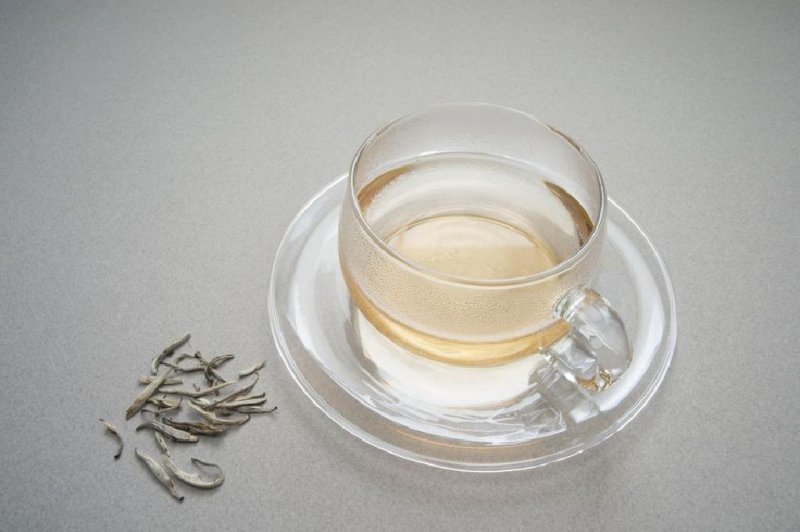
This category is one of the most precious kinds in the world of tea as it derives its name from a silvery leaf that only grows on the back of the freshest, tiniest tea sprouts. The production of the white tea only requires minimal procedures – no rolling, no high-temperature boiling, and no intentional fermentation. Just let it dry naturally or use the tenderest heat to help so that the leaves won’t fall and its fresh, slightly sweet taste will be kept intact.
Famous white teas to try:
- 白牡丹 Bái mǔdān
- 白毫银针 Báiháo yín zhēn
Floral Tea
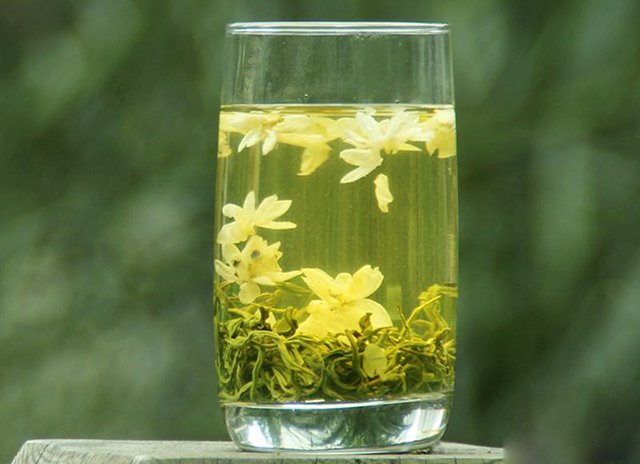
Floral tea or scented teas hold a special "off-spectrum" place in the tea family. There are two different types of floral tea: One is made by scenting the tea with dried fragrant flowers, such as the famous jasmine tea, which usually uses green tea as the base, while the other type will boil the flowers directly, such as the iconic Chrysanthemum tea. Green tea, black tea and oolong tea are all common tea bases to make floral tea, and depending on the type of flower used for scent, the taste and function vary as well.
Famous floral teas to try:
- 茉莉花茶 Mòlìhuā chá Jasmine Tea
- 菊花茶 Júhuā chá Chrysanthemum tea
READ: Chew on This: Discovering Beijing's Best Pretzel Spots
Images: Egoll, Chayesong, The Value, Meimei Fine Teas, Jiaoluolan, Hiloved, Guoronge, Ivchashuo

